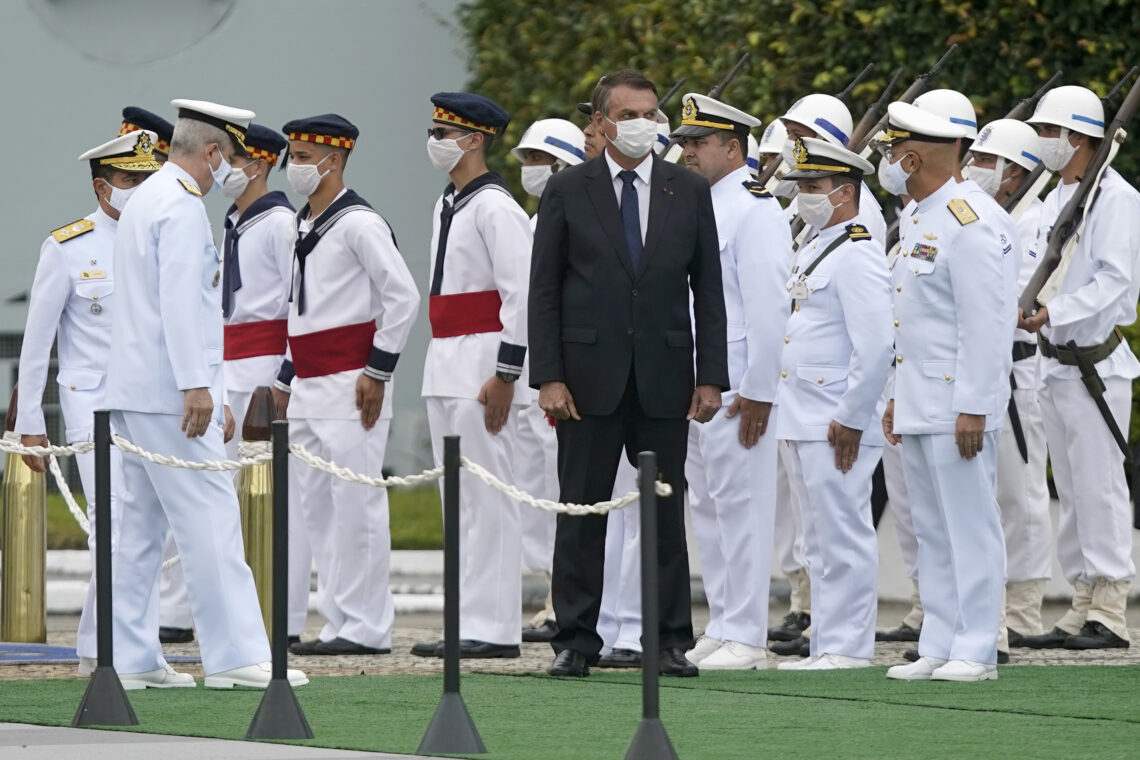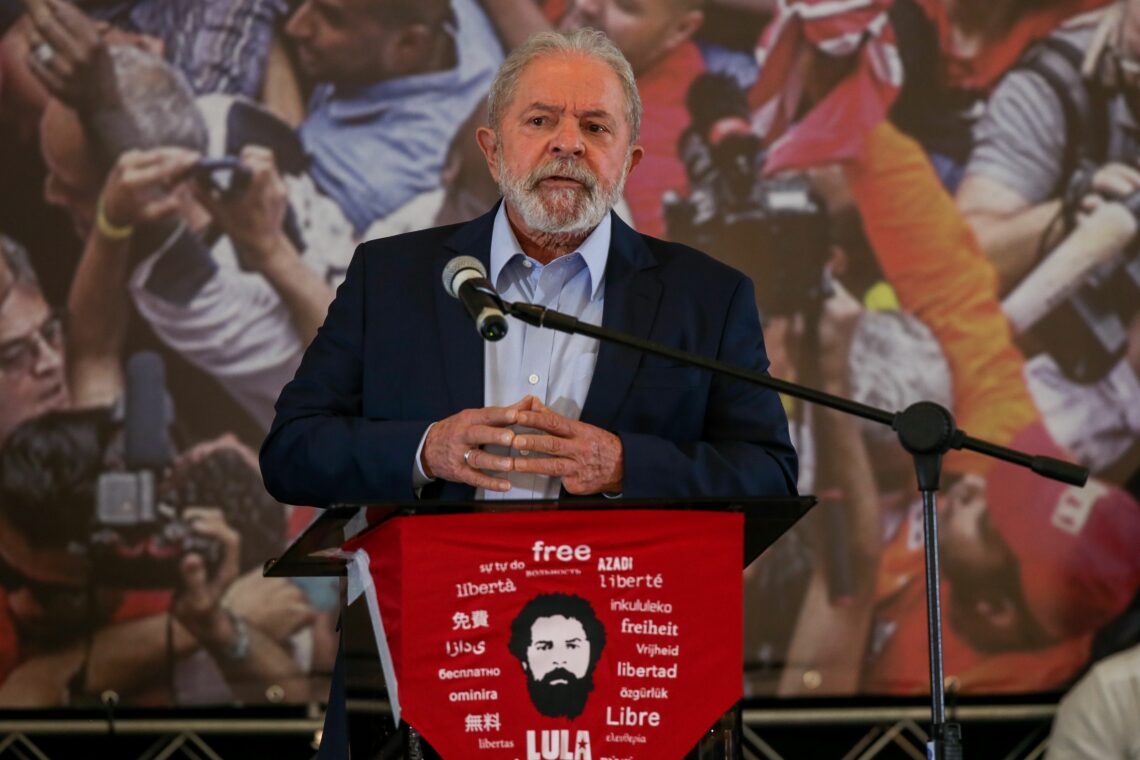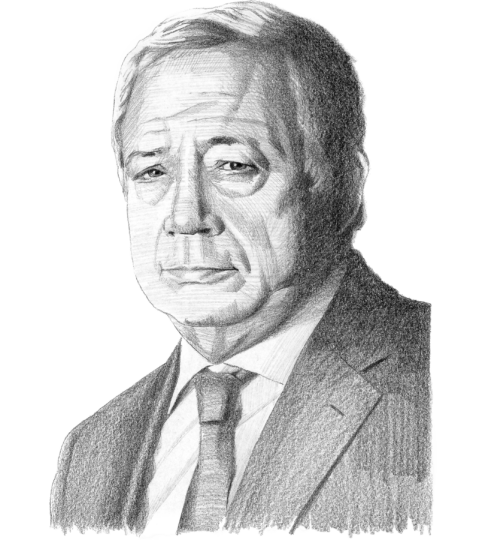The road ahead for Bolsonaro
Upon being elected, President Bolsonaro expected to tackle Brazil’s deep economic recession. But when the Covid-19 pandemic struck, his slow reaction to the threat sent his popularity ratings into a tailspin. How will this influence the 2022 elections in Brazil?

In a nutshell
- President Bolsonaro’s ratings were hit hard by Covid-19
- Recent social measures have boosted his popularity
- He will face stiff challenges ahead of the elections
Dr. Carlota Ahrens Teixeira co-authored this report.
It has been two and a half years since the nationalist, populist, antiestablishment and anti-corruption Brazilian President Jair Bolsonaro took office in January 2019. His policy priorities initially focused on the country’s economic recession and huge fiscal deficit, the high crime rates and endemic corruption. But the emergence of the Covid-19 pandemic in early 2020, which has been ravaging the country ever since, has proven to be Mr. Bolsonaro’s biggest challenge.
His handling of the crisis has earned the president harsh criticism, with thousands of Brazilians taking to the streets to demand his resignation. Mr. Bolsonaro’s supporters also held big rallies throughout the country. The economic upturn during his tenure and the social measures created to counter the economic costs of the pandemic may not suffice to regain the popular support that got him elected.
Mr. Bolsonaro’s economic agenda could be compromised as the health crisis drags on, with mounting socioeconomic costs. But Economy Minister Paulo Guedes, the chief economist of the executive, remains confident. With elections in 2022, the president will face an uphill battle as unexpected opponents could appear and lead Brazil to political radicalization.
(Mis)handling the pandemic
With more than 19 million infections and over half a million deaths, Brazil is one of the countries hardest hit by Covid-19. The health situation is alarming. The resurgence of the virus in early 2021 and the lack of coordination between the central government and federal states authorities have aggravated the situation.
From the start, President Bolsonaro, replicating United States President Donald Trump’s stance, belittled the dangers of the virus, disregarding health experts’ recommendations and abstaining from implementing significant response measures. Instead, he emphasized that the actions taken by state governors, who took the lead in the fight against Covid-19, were in some cases political attacks against him, and that they seriously damaged the economy. He was right in the sense that, for the poorest part of the Brazilian population, confinement meant going without food.
The president eventually managed to calm the political storm and boost his popularity.
Throughout 2020, unemployment skyrocketed, social unrest spread and political tension rose. The president quarreled with the Supreme Court, members of Congress, state governors, and even with members of his own team, leading to three health ministers and the justice minister leaving government. Like Mr. Trump, President Bolsonaro came under fire from the Brazilian and international left, as well as liberal and mainstream media. Pro-Bolsonaro protests were also held, some of which called for military rule. For the left, such appeals raised the specter of the authoritarian military regime that ruled the country from 1964 to 1985 and that still radically divides the country.
Roller-coaster popularity
The president eventually managed to calm the political storm and even boost his popularity. He pulled back from the brink in battles with many state institutions and softened his stance toward federal and local administrations. He also avoided antagonizing the media for some time, quieting rather than publicly lambasting his critics.
But the main factor behind this appeasement was the large emergency cash transfers to help the poorest citizens cope with the pandemic, saving them from extreme poverty. The program is estimated to have bailed out around 30 percent of the population. President Bolsonaro’s popularity rose to levels not seen since his election in 2018. His aid package provided far more money to far more people than the highly popular former President Lula da Silva’s Bolsa Familia in 2003.
The president’s traditional base (the military, Roman Catholic conservatives, Christian evangelicals, some sectors of Brazil’s wealthy elite and the middle class) expanded as supporters poured in from both ends of the political spectrum.

But the health crisis did not abate. Vaccination is proceeding very slowly, and Brazil is excluded from the list of countries expected to receive a donation of 500 million vaccines from the Biden administration. As the country faces a massive third wave of infections, President Bolsonaro’s popularity faltered again. The latest polls show that his disapproval ratings are rising rapidly and are now close to an all-time high: between 52 and 54 percent. A new aid program is on the way, but it will be a modest version of the 2020 initiative, with less money given to fewer people. Even worse, this financial assistance program could be paused or rolled back, depending on the country’s economic performance.
Endangered economic agenda
President Bolsonaro inherited a country coming out of its deepest recession in years. In 2015 and 2016, the two-year average drop in gross domestic product (GDP) was 3.4 percent. Economic recovery was one of his top priorities. A pro-market agenda was implemented, the privatization of state-owned assets was set in motion, and major steps were taken toward reforming the national pension system, the main cause of Brazil’s fiscal deficit. The situation slowly improved. But then the pandemic struck, sending GDP plunging by 4 percent. It was the sharpest drop in almost 30 years.
Despite the high number of infections and deaths and the political turmoil, the largest economy in South America started to bounce back in late 2020, with provisional data pointing to a more robust recovery in the first months of 2021. This positive trajectory, which the Organisation for Economic Co-operation and Development (OECD) believes should extend into the second half of the year, was driven by domestic consumption and exports. Savings accumulated in 2020 may be sufficient to maintain consumption levels, despite the loss of income caused by lockdowns. Exports should continue to benefit from the recovery in overall demand and from increased raw material prices.
Institutions are being defunded and deprived of key competencies, leaving more room for presidential action.
Still, according to the OECD, the Brazilian economy could grow up to 3.7 percent by the end of the year and 2.5 percent in 2022, if the government is able to control the pandemic. Economy Minister Paulo Guedes quotes even higher figures. But these predictions are based on assumptions that are difficult to guarantee: a gradual increase in consumption, more investment and inflation levels below the limit set by the Brazilian Central Bank – something many believe will be hard to accomplish. Recovery will ultimately depend on whether vaccination rates accelerate and the virus is brought under control. Ahead of the 2022 elections, the debate will certainly focus on both the pandemic and Mr. Bolsonaro’s handling of the economy.
Scenarios
Despite the positive economic outlook, the poorest citizens, hardest hit by unemployment and Covid-19, may not benefit from the upturn. Another concern is public debt. From 76 percent in 2019, it rose to 88 percent mid-2020 and it could hit new highs in the coming months. If history is any guide, these ratios could bode ill for Latin America’s economies. Minister Guedes predicts more positive developments. In a recent statement, he announced that Brazil is experiencing a V-shaped recovery and that this year’s economic growth could surpass 4.5 percent. Moreover, 1 million new jobs were created in the first quarter of 2021 and 46 million jobs considered “vulnerable” were “protected.”
To shield himself from possible impeachment, the president needed to extend his support base in Congress. For that, he turned to sectors of the political establishment that he had criticized in the past, forging an informal alliance with several political parties dubbed the “Centrao” (the Big Center), whose loyalty rests more on patronage than ideological proximity. Their support is fragile and could shatter in the case of serious economic headwinds.
If the president has little popular support, no economic cards to play, and lacks the necessary political backing in Congress, he could opt for backstage maneuvering. Without blatantly breaching the constitutional order, this would nevertheless enable him to consolidate his power. The trend is already visible in several branches of government. Institutions are being defunded and deprived of key competencies, leaving more room for presidential action.
As president, Mr. Bolsonaro has forged a close alliance with the military, and the Brazilian Army has always considered itself an arbiter and alternative source of leadership in times of crisis. Many, incited by the left’s propaganda, fear an intervention. Several voices in the military have expressed their outrage at such a scenario. But at the same time, both publicly and off the record, the president’s inner circle has referred to “unforeseeable consequences” if state institutions insist on undermining the president, advising that “limits should not be tested.”
As Brazil heads for the polls in 2022, the incumbent has to regain the favor of his own base. Mr. Bolsonaro has foregone more blatant displays of authoritarianism for pragmatic reasons. But it is his tendency, and he could be tempted to use more drastic measures if he feels his position is endangered. The wave of violence ahead of the municipal elections in 2020, when dozens of activists and protesters were killed, is an ominous sign of what could lie ahead. The 2022 presidential election could also present Mr. Bolsonaro with a chance to win back support from a majority of Brazilians, if former President Luiz Inacio Lula da Silva (2003-2010) emerges as the left’s most likely candidate.
In an unexpected legal twist, Mr. Lula da Silva, who had been accused and convicted to a 12-year sentence in a massive corruption and money laundering scandal, has been recently set free on procedural grounds and is awaiting a new trial. The process will drag on for years and a new trial is unlikely to begin before the 2022 elections. The door is thus open for a presidential race between Mr. Bolsonaro and Mr. Lula da Silva, where the latter’s criminal and legal record could benefit the former.
Either way, Brazilian politics will likely radicalize in the months ahead. There is no substantial support for a middle-of-the-road option. In the short to medium term, Brazil will face a harsh political conflict between left and right. Both will try to feed off the volatile center – the traditional establishment, now perceived as corrupt and rotten – in a fierce struggle for Brazil’s soul.






